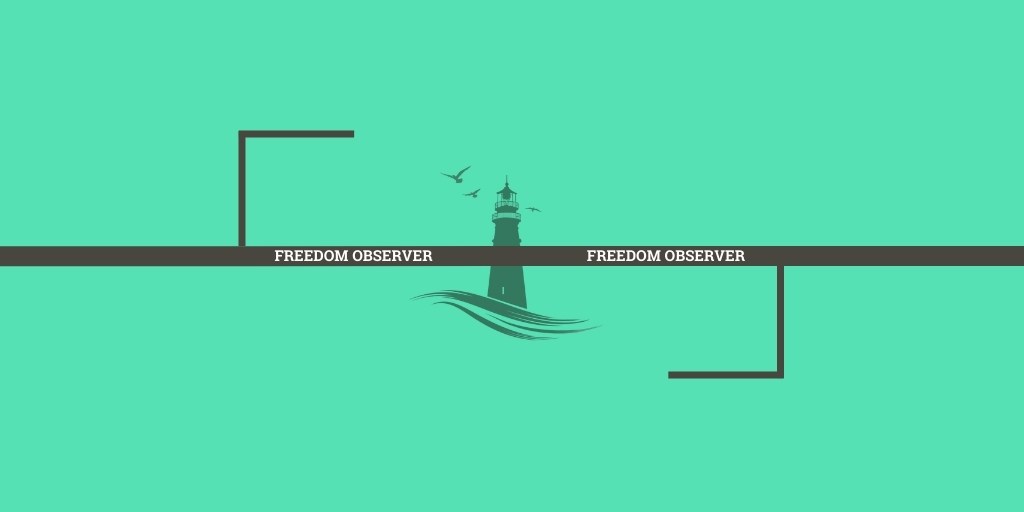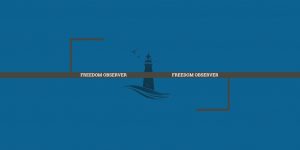From Editor-in-Chief
For some time now, the news and commentary about the possibility of a new “Kurdish Initiative” or “Peace Process” to resolve the Kurdish issue have been occupying newspaper pages, TV screens, and, consequently, Turkey’s political agenda. However, aside from the statement by Erdoğan’s advisor Mehmet Uçum, who firmly stated that there is no question of a new peace process, there has been no clear explanation from the government on this matter. On the contrary, the statements from government circles regarding this rumor do not indicate that a new peace process is on the agenda. Instead, the remarks by Erdoğan and Bahçeli suggest that the People’s Alliance is in search of dialogue and compromise, aiming to gain support for their new constitution project from opposition parties, especially DEM Party.
The rumors began with MHP leader Bahçeli shaking hands with members of the DEM Party during the opening of the new legislative year. Later, Bahçeli explained the significance of this gesture himself: “I reached out to the DEM Party benches and extended my hand. The hand I extended is a message of national unity and brotherhood. (…) It is an invitation to become a party for all of Turkey and to join our national unity. We don’t extend our hand randomly or impulsively. We don’t offer a hand for no reason. (…) It is up to DEM to recognize the value of this extended hand and treat it as an opportunity” (October 8). As can be understood, Bahçeli’s words do not suggest an intention toward a peace process; rather, they imply a warning: “If you don’t align with us, things won’t go well for you.
In President Erdoğan’s speech, in which he thanked Bahçeli, there is no direct reference or expression that suggests a new peace process. Indeed, on October 12, Erdoğan made the following statement: “We find Mr. Bahçeli’s stance positive and meaningful for our country’s struggle for democracy. Mr. Bahçeli is emphasizing the importance of compromise and dialogue in Turkey’s political landscape. Therefore, the step he has taken cannot be overlooked. (…) Our hope is that the number of those who take similar steps increases in the future. As the number of such steps grows, we can hopefully expand the base of societal consensus for a new constitution. The foundation of our politics is the resolution of the country’s issues through broad consensus, including different segments of society in the process.”
Erdoğan made this statement in response to questions about whether a new peace process would begin. In other words, President Erdoğan is clearly stating that their goal is simply to achieve compromise with the opposition for a new constitution.
What truly brought the possibility of a new peace process into the spotlight was Bahçeli’s call to Öcalan during his party’s group meeting on October 15. However, even in this call, there is no implication of a new peace process; in fact, it conveys a strong determination in the opposite direction: “The terrorist leader, who said ‘I am ready to serve in any way’ while being brought to Turkey, should go ahead and unilaterally declare that terrorism is over and that his organization will be dissolved. No one should expect, under any circumstances, for the state to sit at the table with terrorists, or even imagine it. (…) The state does not negotiate with terrorist organizations; it fights them to the bitter end. (…) It will be in the interest of those who have interpreted my extended hand differently for days to know that I extend it wholeheartedly for the state, the nation, and the homeland. We extend our hand not for a process, but for brotherhood.
What’s strange is that these statements have sparked excitement among DEM Party members about a new peace process. In fact, shortly after Bahçeli’s statement, S. Süreyya Önder delivered a brief speech from the parliament podium, thanking Bahçeli and Erdoğan for their “steps toward peace.” Meanwhile, the co-chairs of the DEM Party, who visited Selahattin Demirtaş and Figen Yüksekdağ in prison, announced that their imprisoned colleagues are “ready to contribute in any way to an honorable peace” and emphasized that “the most important and immediate step to starting this process is the ending of the İmralı isolation.
On the other hand, other statements from AKP circles, which seem to reflect the “State’s” stance, indicate that the DEM Party’s expectations hold no weight in the eyes of the State or the People’s Alliance. As I mentioned earlier, President Erdoğan’s “chief advisor” Mehmet Uçum made it clear in a social media post on October 18 that any expectations for a “peace process” have no real basis. Uçum wrote, “No matter what reference is made—softening, normalization, handshakes—there will be no peace process in Turkey, neither similar to the previous one nor in any new form, and it cannot happen.” He didn’t stop there and added: “The State does not retry methods it has tested but could not fully resolve. The State finds other effective methods. These are the strong and effective political and military strategies applied after July 15.”
By stating this, Uçum not only emphasized that the State views the Kurdish issue primarily as a matter of security and terrorism but also clarified the approach that will be taken. “If DEM does not socially and politically evaluate the opportunity to rid itself of terrorist tutelage [to ‘become a party for all of Turkey] or if it misuses this opportunity, then the terrorist tutelage carried out through DEM in the Turkish Parliament will be eliminated by legal means.
Uçum’s statement is further confirmed by AKP Deputy Chairman Efkan Ala’s remarks made a day earlier. Ala stated that a new peace process is not on the party’s agenda and that there is no contact with Öcalan. Referring to the former peace process, Ala said, “We are not obliged to do the same thing every time,” which subtly echoes Uçum’s notion of “solution”—continuing the violent struggle against the PKK while implying the legal elimination of the DEM Party.
Of course, it is in everyone’s best interest to resolve the Kurdish issue through peaceful and conciliatory means, which would remove the enormous human and economic costs that have burdened both the Kurdish people and the rest of Turkey for decades. For our Kurdish citizens, this is also a matter of freedom and democracy. In fact, the peaceful resolution of the Kurdish issue is not only essential for the Kurds but also for all citizens of Turkey to attain a free and democratic regime. We, as non-Kurds, will largely achieve our own liberation through the peaceful resolution of the Kurdish issue. That is why, years ago, I wrote, “The Kurds Will Liberate Us.’’
However, it seems unlikely that such a solution could be realized during the current security-focused administration led by the Erdoğan-Bahçeli duo, whose primary goals are to maintain the status quo and reinforce their own power. From the developments I’ve summarized above, it is not easy to infer that the political leadership has any intention of pursuing such a solution.
In this issue of Freedom Observer, A. Rıza Çoban examines the closure of “Açık Radyo,” the issue of a “contribution fee” being proposed for credit card holders under the pretext of supporting the defense industry, and Caner Gerek analyzes the 2024 Nobel Prize in Economics awarded to Daron Acemoğlu and his colleagues.
Until the next issue, see you soon.
* Prof. Dr. Mustafa Erdoğan
Açık Radio Shut Down
Founded by journalist and lawyer Ömer Madra, Açık Radio has been broadcasting since 1994 with the slogan, “Open to all the sounds, colors, and vibrations of the universe!” However, as of October 11, 2024, the station ceased broadcasting due to the cancellation of its terrestrial broadcast license by the Radio and Television Supreme Council (RTÜK). 1
The process leading to the revocation of the broadcast license stems from the April 24, 2024 broadcast of the “Açık Gazete” program, specifically during the “Nereye Doğru: Cengiz Aktar’la Geleceğe Bakışlar” segment. The claims are based on the use of the term “Armenian Genocide” in the context of the ban on activities commemorating the events of 1915. During the broadcast, journalist Cengiz Aktar (C.A.) engaged in the following dialogue:
“… yes, the Armenian, that is, the deportation and massacres that occurred on Ottoman lands, massacres that are referred to as genocide, mark their 109th anniversary, the sene-i devriyesi. The commemoration has been banned again this year, as you know.”
Ömer Madra: “We tried to touch on this a little earlier. In the opening, we mentioned some of the first bans.”
C.A.: “Yes, it used to take place in Sultanahmet, Haydarpaşa, Taksim, and Kadıköy. Every year, it was held in different places. Initially, it was commemorated in Taksim, back in 2010.”
Özdeş Özbay: “Yes, a commemoration.”
C.A.: “Yes, but it’s no longer possible to hold it there. The Armenian Genocide commemoration… and yet the government still issues a condolence message, as you know, they did so again this year. It’s unclear what exactly they are doing, yes…”
As a result of these statements, RTÜK launched an investigation into the program.
The investigation was launched based on the allegation that the principles in Article 8, paragraph 1(b) of Law No. 6112 on the Establishment and Broadcasting Services of Radio and Television were violated. This provision states that “Broadcasting services cannot incite society to hatred and enmity or create feelings of hatred by discriminating on the basis of race, language, religion, gender, class, region, or sect.” On May 22, 2024, RTÜK ruled that this principle had been violated and imposed an administrative fine and a broadcast suspension on Açık Radyo. The ruling included a fine of approximately 190,000 TL and a five-day broadcast suspension, and it was electronically delivered to Açık Radyo.
However, the section of the notification containing the broadcast suspension penalty could not be opened due to a technical issue, and by the time the document was accessed, the days on which the suspension was supposed to be implemented had already passed. Açık Radyo submitted a request to RTÜK regarding this issue, but on July 3, 2024, RTÜK decided to revoke the station’s broadcast license, citing non-compliance with the suspension decision under Article 32 of Law No. 6112. Nevertheless, because the administrative court had issued a stay of execution in the case against the penalty decision, this revocation decision was not officially communicated to Açık Radyo.
On September 27, 2024, after receiving the response from the administration, the administrative court lifted the stay of execution and rejected the request for a suspension of enforcement. Following this decision, RTÜK officially notified Açık Radyo of the broadcast license revocation.
It is important to note that, despite the high likelihood that the penalty would be annulled—given that the speech in question clearly falls under freedom of expression as established by ECtHR precedents—RTÜK’s decision to revoke the broadcast license without waiting for the court’s final ruling can hardly be considered a good-faith action. Additionally, despite Açık Radyo stating that the failure to comply with the broadcast suspension was unintentional and due to a technical oversight, RTÜK revoked the terrestrial broadcast license the very next day after Açık Radyo made this notification, which also does not seem to align with a good-faith approach.
Regarding criminal prosecutions related to the use of the term “Armenian Genocide,” several appeals have been made to the Constitutional Court and the European Court of Human Rights (ECtHR), both of which ruled that the use of this term should not be the subject of criminal charges. In the *Deniz Yücel* case, the Constitutional Court stated, “The applicant’s use of the phrase ‘genocide against Armenians’ relates to a topic that triggers heated debates not only in Turkey but also internationally.2 The mere use of such a phrase should not be subject to criminal charges.” Similarly, in the *Taner Akçam* case, the ECtHR found that the investigations launched against the applicant for his writings and speeches on the “Armenian Genocide” constituted a violation of freedom of expression.3
Despite these rulings, the revocation of Açık Radyo’s broadcasting license—a station that has been broadcasting for 30 years—solely because the term “Armenian Genocide” was mentioned in a radio program, clearly constitutes a violation of freedom of expression and amounts to censorship.
* Doç. Dr. Ali Rıza Çoban – Constitutional Lawyer
Geopolitical Risks as an Excuse, Tax Burden as the Reality
The AK Party has introduced a new bill that will impose additional financial burdens on citizens. According to the proposed 12-article bill, credit cardholders with a limit exceeding 100,000 TL will be required to pay an annual 750 TL defense industry contribution fee. Additionally, a registration fee of 3,000 TL for newly registered vehicles and 1,500 TL for second-hand vehicles is proposed. In real estate transactions, both the buyer and the seller will be charged a 750 TL contribution fee, while other cadastral and title deed transactions will incur a 375 TL fee. Moreover, additional taxes are planned for various products, including luxury items like wristwatches valued above 5,000 TL and non-military drones.
The government is justifying this proposed bill by citing regional instability and Israel’s occupations. AK Party MP Hüseyin Altınsoy, who introduced the bill, stated, “As our country’s geopolitical position enhances its significance both regionally and globally, it also brings risks and threats. In this context, the development and strengthening of our defense industry have become not just a need but a necessity.” 4 He emphasized that supporting this fund is essential for national security. Treasury and Finance Minister Mehmet Şimşek added, “A steel dome will be built. An air defense system to protect the country will be established. These are expensive systems. The defense industry needs resources,” indicating that, in effect, the public would need to contribute financially to build a stronger air defense system than Israel’s Iron Dome. In recent days, pro-government media outlets have also begun spreading unsubstantiated claims that Israel has entered Syria.5
The proposed bill has sparked significant reactions from both politicians and the public. Many citizens took to social media, sharing that they had lowered their credit card limits to 99,000 TL to avoid the new fee. In response to the criticism, BBP leader Mustafa Destici attempted to justify the bill with a nationalistic tone, saying, “Give it, brother! If you don’t, your fate will be like Syria, Iraq, or Palestine. Our soldiers give their lives, our police shed their blood, security officers sacrifice their families; is 750 lira too much for you?”6 He used this rhetoric to defend the proposal and appeal to a sense of patriotism.
This proposed law exposes the incompetence and desperation of the AK Party in many ways. Firstly, taxing debt—or more precisely, taxing an unused credit limit—is contrary to laws, logic, and reason. As economist Mahfi Eğilmez pointed out: “You cannot tax a credit card limit or even the credit used. Credit is debt. Taxes are collected from the creditor who provides the credit, not from the debtor. As we move away from science, we are entering a disastrous conceptual confusion.”7 Secondly, poor economic policies implemented in recent years have driven households into debt and toward credit card usage, and the government sees this public trend as an opportunity. In short, citizens are being squeezed by both poor economic management and these unreasonable policies. Ultimately, this proposal, which is claimed not to affect low-income groups, will impact tens of millions of people. According to data from the Risk Center of the Banks Association of Turkey, 49.2% of credit cards in Turkey have a limit exceeding 100,000 liras.8 This data alone shows that a credit card limit of 100,000 liras is not an indicator of wealth but has become a tool that middle-income families use to finance their daily expenses and, often, to defer them.
In other words, contrary to what is assumed, this measure will not only impact higher-income groups but also a broad segment of the population.
It’s also important to note that while the government demonstrates “creativity” in generating additional resources, it is not taking meaningful steps to reduce public expenditures. Without implementing comprehensive reforms to improve public finances, asking the public to bear new taxes and fees—essentially focusing on increasing revenue without reducing expenses—is not a reasonable approach to resolving the economic crisis. Every economic actor is expected, and even pressured, to do their part in combating the crisis, yet the government turns a blind eye to its own responsibilities. If the government cannot rein in its own wasteful spending, expecting sacrifices from the public does not seem fair.
Lastly, regarding the regional geopolitical risks, the threat from Israel, and the defense industry, which have been cited as justifications for these new financial obligations: There is no doubt that the importance of the defense industry cannot be overlooked, especially for a country like Turkey, surrounded by conflict. But we have to ask: Has the need for the “steel dome” that Şimşek claims is so expensive suddenly arisen today? How did our famously strategic state intelligence fail to foresee these regional risks? Why did we spend billions of dollars on S-400s, which we left unopened in storage, and in the process, exit the F-35 project?
Indeed, Turkey needs an air defense system; it is one of the missing elements of our national security. However, it is unacceptable for a government that has wasted taxes collected from the public on reckless foreign policy moves and unnecessary defense projects to shift the financial burden onto the people again. If the defense industry truly requires such urgent and critical resources, the government must first control wasteful spending and manage public expenditures more efficiently. Before dipping into the already debt-ridden pockets of citizens, there should be a transparent and accountable fiscal policy in place that shows how public funds are being spent.
*As this article was being written, it was announced that the proposed bill would be discussed after the New Year. The provision to collect contribution fees from credit cards, which dominated the discussion and sparked significant public backlash, overshadowed other aspects of the bill and forced the government to step back. Our expectation is that this proposal will likely resurface after the New Year, with the credit card provision—impacting tens of millions of people—removed and replaced by a few less controversial additions.
* Dr. Ömer Faruk Şen– Missouri University
What Does the 2024 Nobel Prize in Economics Tell Us?
The 2024 Nobel Prize in Economics (officially the Sveriges Riksbank Prize in Economic Sciences in Memory of Alfred Nobel) was awarded last Monday to Daron Acemoğlu, Simon Johnson, and James A. Robinson. The fact that one of the recipients, Daron Acemoğlu, was born and raised in Turkey and completed his education up until university in the country, has drawn attention to his work and economic contributions in Turkey. Acemoğlu and his colleagues’ research offers valuable insights into the current situation in Turkey as well.
Daron Acemoğlu and the two other laureates were awarded the prize for their work explaining the vast differences in prosperity between nations. Their research argues that these disparities are not primarily due to factors like geography, culture, or access to technology, but rather stem from differences in institutional structures. Acemoğlu and his colleagues aimed to explain the wealth disparities of today’s world by exploring the past and examining the historical dynamics of societies. They focused on the impact of institutions, and the striking conclusion, as summarized by the Nobel Committee, is this: inclusive institutions were often implemented in countries that were poor when colonized, and over time, these institutions generally resulted in a prosperous population. This helps explain why formerly wealthy colonies are now impoverished, and vice versa.9
The emphasis on the inclusiveness of institutions, as highlighted by the Nobel Committee, is crucial here. Acemoğlu and Robinson found that inclusive institutions promote economic growth, whereas extractive institutions, which hinder long-term prosperity, negatively impact overall well-being. Inclusive institutions refer to political and economic structures that promote broad societal participation, equality, and the rule of law. These institutions create opportunities for individuals to engage in economic activities, innovate, and accumulate wealth, ensuring that the majority of citizens have access to resources and political influence.
In contrast, extractive institutions concentrate power and wealth among elites, stifling competition and limiting a country’s economic potential. Acemoğlu, Robinson, and Johnson compare inclusive institutions with extractive ones, which hinder innovation and growth by concentrating wealth and political power among elites. Their research demonstrates that inclusive institutions are critical for sustainable economic development, as they foster investment, technological advancement, and social mobility over time.
When discussing the findings of Acemoğlu, Johnson, and Robinson, it’s important to highlight their 2001 paper published in the *American Economic Review* titled *The Colonial Origins of Comparative Development: An Empirical Investigation*. This paper laid the foundation for their influential books like *Economic Origins of Dictatorship and Democracy*, *Why Nations Fail*, and *The Narrow Corridor*. This impressive paper, which has garnered 18,620 citations as of the time of writing, analyzes the impact of colonial institutions on modern economic development.
The paper demonstrates that regions where European colonizers established extractive institutions experienced lower long-term economic growth. In contrast, regions where colonizers developed inclusive institutions, such as legal protections for private property, achieved higher levels of growth, even after decolonization. Their research argues that economic development is not merely about access to resources or geographical advantages but about how societies organize their institutions.
In addition to establishing the causal relationship between institutions and societal prosperity, the laureates also initiated a new era in economics with their empirical approach. Their contribution was not just in uncovering a causal relationship but also in advancing methodology. The mathematical modeling and econometric methods they used to demonstrate this relationship were groundbreaking, and the Nobel Committee emphasized the innovative nature of their methodology in explaining why the award was given. Through their methodological contributions, these three scholars have paved the way for future researchers.
However, it’s also worth noting that the award has received its share of criticism. In particular, critics argue that the prosperity seen in countries like China and South Korea, where inclusive institutions are absent, has been overlooked. These critiques suggest that the research prioritizes Western institutional frameworks, while ignoring the different development paths pursued by non-Western countries. Thus, the works have been found problematic for seemingly neglecting the diversity of development strategies outside the Western context.
* Dr. Caner Gerek
1 https://x.com/acikradyo/status/1844803123954483397
2 İlker Deniz Yücel, B. No. 2017/16589, 28.05.2019, § 85.
3 Altuğ Taner Akçam/Türkiye, no. 27520/07,25.10.2011; ayrıca AİHM’in şu kararlarına da bakılabilir: Güçlü/Türkiye, no. 27690/03, 10.2.2009; Dink/Türkiye, no. 2668/07 6102/08 30079/08… , 14.09.2010; Cox/Türkiye, no. 2933/03, 20.05.2010; İlker Deniz Yücel/Türkiye, no. 27684/17, 25.01.2022.
4 https://bigpara.hurriyet.com.tr/haberler/genel-haberler/kredi-kartlarindan-savunma-sanayii-payi-gorusmesi-ertelendi-ak-partili-guler-acikladi-yasa-teklifi-2025-yilina-birakildi_ID1602021/
5 https://gazeteoksijen.com/ekonomi/simsekten-savunma-sanayi-payi-aciklamasi-celik-kubbe-insa-edilecek-225458
6 https://finans.mynet.com/haber/detay/ekonomi/kredi-karti-limitine-vergiyi-savunurken-konuyu-dem-parti-ye-yunanistan-a-ve-ermenistan-a-baglayan-destici-onun-vermedigi-750-lirayi-biz-veririz/490735/
7 https://x.com/mahfiegilmez/status/1845033303499214920
8 https://www.riskmerkezi.org/Content/Upload/istatistikiraporlar/ekler/4469/RM_Aylik_Bulten_-_Agustos_2024.pdf
9 https://www.nobelprize.org/prizes/economic-sciences/2024/popular-information/





